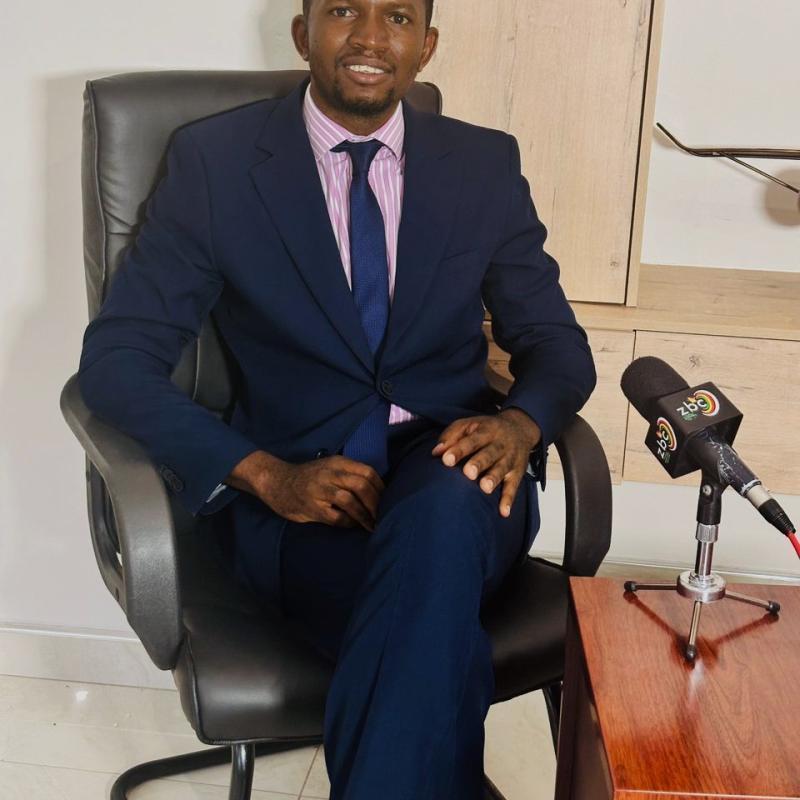How Prince Hwenjere transformed his undergraduate study into Micro Venture, a thriving Zimbabwean financial institution serving underbanked small businesses through innovative lending and venture capital solutions.
For many University students undergraduate research is done just in partial fulfilment to attain a degree. This was not the case with Prince Hwenjere who went on to turn his research into a thriving business. Micro Venture, the business he co-founded and is currently running stemmed from his undergraduate research as a Banking and Finance student at the National University of Science and Technology (NUST).
The Capital Challenge: Overcoming Financial Hurdles
Prince’s research was focused on establishing financing models that could apply to micro to small medium enterprises (MSMEs) which could not access loans from commercial banks. He saw that there was potential in his research to be turned into a viable business. However as a student he did not have the means. The major hurdle was raising the requisite capital of US$30 000 to get licensing as a micro-finance institution. After completion of his degree programme, Prince went on to work at an information technology company in 2014. He left the job after a year to fulfil his childhood dream of owning his ownbusiness.
In the following year Prince joined hands with Melody Mangwende a friend and former classmate to pursue his business dream in the micro-finance sector. They started working with micro-finance institution as agents to gain exposure and raise capital that they needed. Their responsibility was to seek MSMEs that were in need of financing then conduct all the due diligence for their qualification for financing. By the end of 2015 they had raised adequate capital coupled with further financing from investors who saw potential in their startup. “We had to work very hard to raise the money. We also got individuals who believed in what we were aiming for so finally we were able to approach the Reserve Bank of Zimbabwe (RBZ) to get a license,” he said.
Risk Management: Structuring Loans for Success
When operations commenced at the end of 2015, their major clientele were micro businesses and informal traders. They were able to extend loans to the businesses without requesting them to bring significant collateral such as vehicles or title deeds. As the business grew, they started extending financing to bigger Small to Medium Enterpises particularly those in the export trade. Their business has different models that suit the different businesses they serve which minimises the risk of non-performing loans. Prince reveals that their business has a lot of risk but their focus is minimising the risk by structuring their loans in a way that makes it easier for businesses to pay back. “Once you have extended a loan, there is risk of people not paying back. We try to package our loans to assist MSMEs and also encourage them not to borrow from multiple places,” he stated.
Micro Venture is now extending operations through acquisitions of MSMEs where they invest in a business in exchange for equity. Their operations as venture capitalists give small businesses room to generate income before starting paying off loans. To date Micro Venture holds controlling stake in 4 companies and they oversee the running of the businesses. They also established a subsidiary called Macro Century an Information, Communication and Technology (ICT) company that offers technology services to banks and other financial institutions.
Navigating Economic Turbulence
Prince bemoans policy inconsistencies in the Zimbabwean financial sector as the major drawback to their business. In 2016 the country changed currency from the United States dollar to the local bond note resulting in all their banked balances turning to local currency. The business had financed some invoices and given out loans in foreign currency which now had to be paid back in local currency. He reveals that they were fortunate that about 40 percent of their loans had been to exporters who were faithful enough to pay back in foreign currency. The Zimbabwean economic landscape is also characterised by high inflation however, their business has managed to stay afloat. Prince marvels at the impact they have made by supporting small businesses which were deemed too small or disregarded by bigger financial institutions.
Commenting on the level of competition in his sector Prince stated that the market was too vast to consider other players as competition. “We view other players as companies that are servicing markets that we are unable to cater for. Reports reveal that over 65 percent of the Zimbabwean population remains financially excluded so the market is not exhausted,” he stated. His advice to people who want to venture into business is for them to take the risk of starting even though it may be hard. He also advices entrepreneurs to surround themselves with good people who can push them to achieve their goals. Prince’s main inspiration is his wife who gives him the strength to wake up every morning and work as hard as he does.




